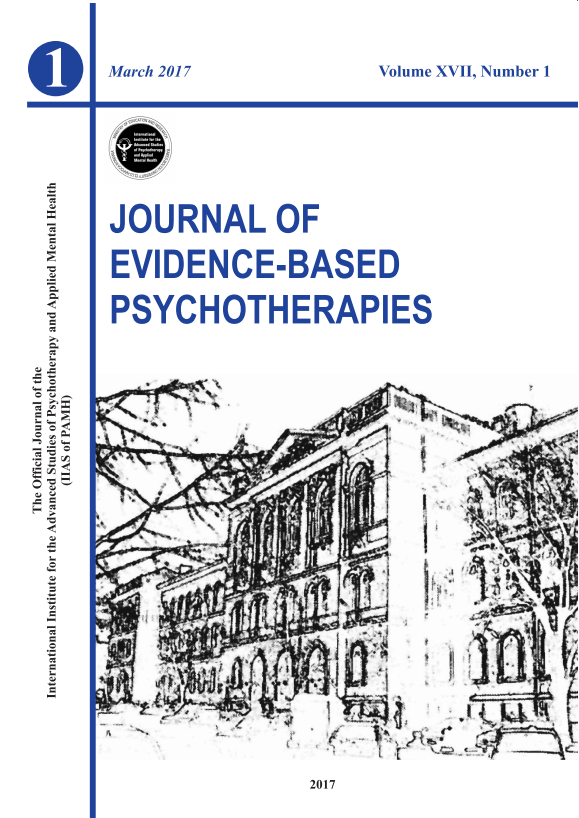Monica Bianca BARTUCZ 1,2, Daniel Ovidiu DAVID 2,3,4
daniel.david @ubbcluj.ro
1 Evidence-Based Assessment and Psychological Interventions Doctoral School,
Babeș-Bolyai University Cluj-Napoca, Romania
2 International Institute for the Advanced Studies of Psychotherapy and Applied
Mental Health, Babeș-Bolyai University, Cluj-Napoca, Romania
3 Department of Clinical Psychology and Psychotherapy, Babeş-Bolyai University,
Cluj-Napoca, Romania
4 Department of Population Health Sciences and Policy at Icahn School of Medicine
at Mount Sinai, New York, NY, United States
Abstract
At individual level, irrational/dysfunctional beliefs are considered to be one of the important sources of psychological and mental health problems. Despite the fact that the Cognitive – Behavioral Therapy (CBT) model has the potential to explain human functioning at group level, almost no research has investigated if irrational/dysfunctional beliefs could be used to understand the differences between countries in terms of human functioning indicators. Using the methodology employed by cross-cultural research, we aggregated individual scores on two measures of irrationality that we have identified in the 6th wave of the World Values Survey. We combined the two items in a single irrationality index and correlated this index across N = 60 countries with the following aggregated or standalone indicators: national level autonomy, healthy life expectancy, human development, peacefulness, state of democracy, happiness and life satisfaction, as well as secular and emancipative cultural values). Results showed that, mirroring individual level analyses at country level, irrationality negatively correlated with most of these indicators. Almost all associations were in the medium and large effect size intervals. Yet, future studies using instruments with established psychometric properties are needed to verify these relationships and investigate their causal and temporal link. Our findings sustain the hypothesis that beliefs derived from the CBT model can be used to study cross-national differences at country level functioning and sets the stage for a new field of research covering this topic.
Please cite this article as: Bartucz, M. B., & David, D. O. (2019). Irrational beliefs at country level functioning: A cross-cultural extension of the cognitive-behavioral model. Journal of Evidence-Based Psychotherapies, 19(1), 1-26.
Keywords: cross-cultural CBT, irrational beliefs, dysfunctional beliefs,
country-level functioning, cultural values
DOI:10.24193/jebp.2019.1.1
Published online: 2019/03/01
Published print: 2019/03/01
